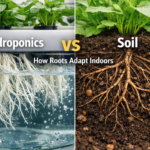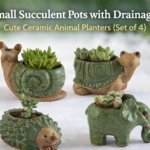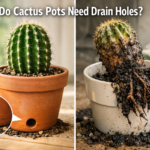Ever found your curious cat nibbling on your gorgeous Monstera plant? You’re not alone. Monstera plants are a favorite among plant lovers because of their bold, dramatic leaves, but if you’ve got a feline friend at home, it’s time to reconsider.
The question many pet parents ask is: Are Monstera toxic to cats? Let’s dig into the science, symptoms, and safety tips that every cat owner should know.
What Is a Monstera Plant?

The Monstera plant is a striking tropical houseplant native to Central and South America. Known for its large, glossy leaves with natural splits or “fenestrations,” it adds an exotic, dramatic touch to indoor spaces. But it’s not just about the aesthetics. Monstera plants are low maintenance, relatively forgiving, and adaptable to various lighting conditions, making them ideal for busy homeowners or plant newbies.
Monstera plants belong to the Araceae family—the same as philodendrons and peace lilies. They’re climbers by nature, often growing along trees in the wild. Indoors, they typically thrive in pots with a moss pole or trellis.
Why they’re so popular:
- Decor appeal: Large, sculptural leaves instantly elevate any room.
- Easy care: They tolerate low to bright indirect light.
- Air-purifying: Like many houseplants, they can help clean the air.
But before you place one in your cat’s favorite sunspot, you need to understand the risks.
Types of Monstera Plants
There are several varieties of Monstera plants, and while they all belong to the same family, they differ slightly in appearance and growth habits. Each type contains similar toxic compounds, making them equally hazardous to cats.
Here are the most common types:
- Monstera deliciosa: The most iconic variety, known for its huge, split leaves. Often called the “Swiss cheese plant.”
- Monstera adansonii: Smaller, more delicate leaves filled with oval holes. Great for hanging baskets or climbing poles.
- Monstera obliqua: Rare and hard to find. Extremely thin, lacy leaves with massive holes.
- Monstera siltepecana: Has silver patches and a more vine-like growth habit.
- Monstera dubia: Grows flat against surfaces like a shingle, with less dramatic leaf fenestration.
Regardless of the variety, all Monstera contain calcium oxalate crystals, the toxic component harmful to cats. So even if your Monstera looks different from the typical houseplant, it still poses a risk.
Is Monstera Toxic to Cats?

Yes, Monstera plants are toxic to cats. They contain insoluble calcium oxalates, which are harmful if ingested. When a cat chews on the plant, these tiny crystals pierce the soft tissues of the mouth, tongue, and throat, causing intense pain and inflammation. While Monstera poisoning is usually not fatal, it can lead to serious discomfort and requires attention.
Let’s break down the danger:
- Toxin: Calcium oxalate crystals (raphides)
- Effect: Mechanical irritation of tissues
- Response: Drooling, pawing at the mouth, vomiting, etc.
Even though Monstera is not considered one of the most toxic plants (like lilies or sago palm), it still presents a serious issue for curious pets. It’s especially concerning because cats often chew on leaves out of boredom or curiosity—not hunger—making any houseplant a potential hazard.
What Makes Monstera Toxic?
The main culprit in Monstera toxicity is the presence of insoluble calcium oxalates, found in all parts of the plant. These oxalates exist in the form of sharp, microscopic needles known as raphides. When a cat bites into a leaf or stem, these raphides shoot into the tissues of the mouth, tongue, and sometimes even the esophagus, causing immediate and intense pain.
Here’s what happens inside:
- Step 1: Cat chews a leaf
- Step 2: Raphides penetrate tissue
- Step 3: Cat experiences burning, drooling, swelling
- Step 4: Secondary symptoms like vomiting or loss of appetite may follow
Unlike toxins that are absorbed into the bloodstream, these crystals act locally—but aggressively. That means while the symptoms are immediate and painful, systemic toxicity (affecting internal organs) is rare. Still, it’s uncomfortable enough to require quick intervention.
How Much Is Dangerous?
With Monstera, even a small bite can trigger a strong reaction. While it’s unlikely to be fatal unless a large quantity is consumed and the cat goes untreated, even minimal ingestion can lead to significant discomfort. Because cats are small creatures, their tolerance for any toxic compound is lower than that of humans or even dogs.
Risk depends on:
- Cat size and age – Kittens and senior cats are more vulnerable
- Amount consumed – One bite may be enough to cause symptoms
- Duration of exposure – Prolonged chewing increases severity
Symptoms of Monstera Poisoning in Cats
If your cat has taken a bite out of a Monstera plant, you’ll likely see symptoms within minutes. The insoluble calcium oxalate crystals cause immediate irritation, and your cat’s reaction can be dramatic.
Common signs of Monstera toxicity in cats include:
- Excessive drooling: A major red flag. Your cat may foam at the mouth due to mouth pain.
- Pawing at the mouth or face: This is their way of signaling discomfort or trying to remove plant bits.
- Oral swelling: Look out for puffy lips, tongue, or gums.
- Vomiting: If ingested in larger amounts, vomiting can occur shortly after.
- Refusal to eat or drink: Pain and swelling can make swallowing difficult.
- Whining or growling: Vocal changes may indicate your cat is in distress.
What to Do If Your Cat Eats Monstera
If you suspect or witness your cat nibbling a Monstera, staying calm is essential. Quick action makes a huge difference in minimizing discomfort and preventing complications.
Follow these steps immediately:
- Remove any plant material from your cat’s mouth—gently and carefully.
- Rinse the mouth with clean water if your cat allows it. Use a syringe or small cup to flush the area.
- Don’t induce vomiting unless a vet specifically advises it.
- Observe your cat’s behavior for any symptoms over the next 4–6 hours.
- Contact your veterinarian or emergency vet clinic for guidance, especially if symptoms appear severe.
Treatment Options for Monstera Poisoning
While most Monstera poisonings aren’t life-threatening, prompt veterinary care ensures a quicker, more comfortable recovery for your cat. Treatments vary depending on the amount consumed and severity of symptoms.
Your vet may administer:
- Fluids (IV or subcutaneous): Helps flush out toxins and prevent dehydration.
- Pain relief or anti-inflammatory meds: To ease swelling and mouth discomfort.
- Antihistamines: In case of a more severe allergic reaction.
- Activated charcoal: Rare, but used if ingestion is recent and severe.
- Feeding support: In cases where oral pain prevents normal eating.
Recovery time is generally quick—most cats return to normal within 24–72 hours. However, delayed treatment or repeated exposure can lead to longer-term issues like mouth ulcers or appetite loss. Always prioritize early intervention.
How to Prevent Cat-Plant Poisoning Incidents

Prevention is key when it comes to pets and plants. Cats are naturally curious and agile, making it hard to keep anything “off-limits” without a strategy. So, how do you stop them from nibbling on your Monstera—or any plant?
Tips to reduce risk:
- Place plants out of reach: High shelves or hanging planters work better than floor pots.
- Use deterrent sprays: Pet-safe bitter sprays make leaves taste unpleasant.
- Distract with cat grass or catnip: Offer safe greenery to redirect chewing.
- Train with positive reinforcement: Reward your cat when they ignore the plant.
- Cover the soil with pebbles: It can discourage digging and curiosity.
Safe Alternatives to Monstera for Pet Owners
If you’re looking to green up your space without risking your cat’s health, there are many beautiful, non-toxic plant alternatives that are cat-safe and equally stylish.
Try these cat-friendly houseplants:
- Spider Plant (Chlorophytum comosum): Air-purifying and hardy, with cool arching leaves.
- Areca Palm: Tropical vibes without the toxic risk.
- Calathea: Bold, patterned foliage that thrives in low light.
- Boston Fern: A soft, bushy plant that’s safe for cats.
- Bamboo Palm: Adds height and drama while staying pet-safe.
Why Cats Chew on Plants
You might wonder why your cat keeps attacking your greenery in the first place. Cats chew on plants for several reasons—some are instinctual, while others may be behavioral.
Reasons cats chew plants:
- Curiosity: They explore the world with their mouths, especially as kittens.
- Boredom: A lack of stimulation can lead to mischievous chewing.
- Nutrient cravings: Some cats may chew to aid digestion or satisfy dietary needs.
- Attention-seeking: If they notice you reacting strongly to chewing, they might repeat it.
- Texture fascination: The crunch or feel of leaves can be satisfying.
Toxic Plants to Avoid if You Have Cats
Monstera isn’t the only plant to watch out for. In fact, many common houseplants and garden plants are harmful—or even deadly—to cats.
Highly toxic plants for cats include:
- Lilies: Especially dangerous—can cause kidney failure with even small exposure.
- Dieffenbachia (Dumb Cane): Similar to Monstera, causes oral irritation.
- Sago Palm: Extremely toxic—just one seed can be fatal.
- Aloe Vera: Despite its healing properties for humans, it’s harmful to pets.
- English Ivy: Can cause vomiting, diarrhea, and drooling.
Conclusion
Monstera plants may be gorgeous additions to your indoor garden, but they’re not safe for curious cats. While not usually fatal, their calcium oxalate crystals cause painful symptoms and require attention. Whether you’re a seasoned plant collector or just adding some greenery to your space, understanding the risks and making informed choices can keep your feline friends safe and happy.
FAQs
1. Can cats die from eating Monstera?
While it’s rare, large ingestions and untreated symptoms could potentially lead to complications. Immediate care usually prevents fatal outcomes.
2. Are Monstera toxic to dogs too?
Yes, Monstera is toxic to dogs for the same reason—calcium oxalate crystals cause irritation and discomfort.
3. How long does it take a cat to recover from Monstera poisoning?
Most cats recover within 1 to 3 days if treated quickly. Severe reactions may require longer care.
4. What parts of the Monstera plant are toxic?
All parts—the leaves, stems, and even roots—contain calcium oxalate crystals and should be kept away from pets.
5. Is Monstera safe for cats if they don’t chew on it?
Yes, if your cat never chews or nibbles it. But it’s risky to assume they never will, especially if bored or curious.






